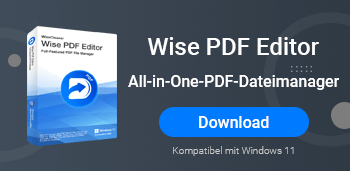Home > Denkfabrik > Tips to optimize Windows for better performance (1)
November 4, 2013
Tips to optimize Windows for better performance (1)
No matter how fast or shiny computers might be when they're new, they all seem to get slower over time. That state-of-the-art PC you bought last year might not feel like such a screamer after you install a dozen programs, load it with antispyware and antivirus tools, and download untold amounts of junk from the Internet. The slowdown might happen so gradually that you hardly notice it, until one day you're trying to open a program or file and wonder, "What happened to my poor PC?"
Whatever the cause, there are lots of ways to help speed up Windows and make your PC work better—even without upgrading your hardware. Here are some tips to help you optimize Windows 7 for faster performance.
(1)
Delete programs you never use
Many PC manufacturers pack new computers with programs you didn't order and might not want. These often include trial editions and limited-edition versions of programs that software companies hope you'll try, find useful, and then pay to upgrade to full versions or newer versions. If you decide you don't want them, keeping the software on your computer might slow it down by using precious memory, disk space, and processing power.
It's a good idea to uninstall all the programs you don't plan to use. This should include both manufacturer-installed software and software you installed yourself but don't want any more—especially utility programs designed to help manage and tune your computer's hardware and software. Utility programs such as virus scanners, disk cleaners, and backup tools often run automatically at startup, quietly chugging along in the background where you can't see them. Many people have no idea they're even running.
Even if your PC is older, it might contain manufacturer-installed programs that you never noticed or have since forgotten about. It's never too late to remove these and get rid of the clutter and wasted system resources. Maybe you thought you might use the software someday, but never did. Uninstall it and see if your PC runs faster.
Wise Program Uninstaller here helps uninstall stubborn programs with Forced Uninstall.
http://www.wisecleaner.com/wiseuninstallerfree.html
Whatever the cause, there are lots of ways to help speed up Windows and make your PC work better—even without upgrading your hardware. Here are some tips to help you optimize Windows 7 for faster performance.
(1)
Delete programs you never use
Many PC manufacturers pack new computers with programs you didn't order and might not want. These often include trial editions and limited-edition versions of programs that software companies hope you'll try, find useful, and then pay to upgrade to full versions or newer versions. If you decide you don't want them, keeping the software on your computer might slow it down by using precious memory, disk space, and processing power.
It's a good idea to uninstall all the programs you don't plan to use. This should include both manufacturer-installed software and software you installed yourself but don't want any more—especially utility programs designed to help manage and tune your computer's hardware and software. Utility programs such as virus scanners, disk cleaners, and backup tools often run automatically at startup, quietly chugging along in the background where you can't see them. Many people have no idea they're even running.
Even if your PC is older, it might contain manufacturer-installed programs that you never noticed or have since forgotten about. It's never too late to remove these and get rid of the clutter and wasted system resources. Maybe you thought you might use the software someday, but never did. Uninstall it and see if your PC runs faster.
Wise Program Uninstaller here helps uninstall stubborn programs with Forced Uninstall.
http://www.wisecleaner.com/wiseuninstallerfree.html

 Download Center
Download Center